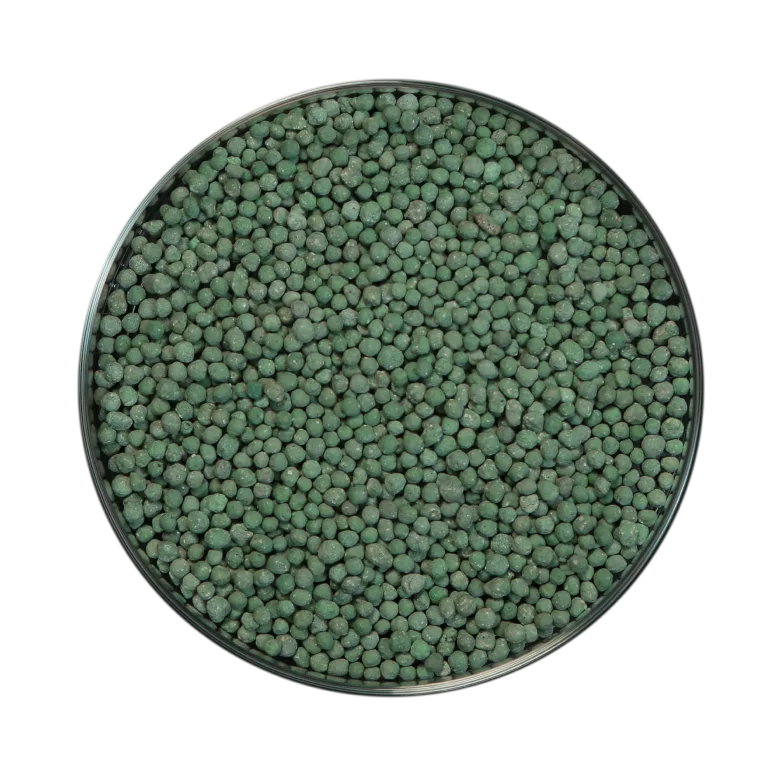


Talc Base Bio Pesticide Granule
Trichoderma Harzianum
 Share On Whatsapp
Share On Whatsapp

Trichoderma thrives on the surface of plant roots, providing both disease protection and promoting root growth. Its spores are resilient in the soil, but the fungus primarily feeds on secretions from the root surface. Unlike seed-applied fungicides, Trichoderma multiplies on its own.
- Minimal application: Only a small amount is needed since it expands and continuously covers the roots.
- Ongoing protection: Once established, it protects the entire root system throughout the growing season, unlike chemical treatments that only protect the seed for a few weeks.
Once Trichoderma colonizes the roots, it enhances growth in two key ways:
- Prevents root rot by attacking harmful fungi.
- Mitigates physical stress, accelerating root growth.
Trichoderma combats several major root rot pathogens, including Pythium, Rhizoctonia, and Fusarium, through a process called mycoparasitism.
- It secretes enzymes that dissolve the cell walls of harmful fungi, allowing it to consume them and protect crop roots from rot.
1 X 107 CFU/ML
Soil Improvement:
Trichoderma harzianum adapts well to various soil types, controls soil-borne pathogens, and helps develop a stable, nutrient-rich, and moisture-preserving soil structure.
It alleviates issues like soil salinization, compaction, and acidification, reduces heavy metals and pollutants, and significantly improves soil health and fertility.
Biological Disease Control:
Trichoderma harzianum combats harmful fungal pathogens like Phytophthora, Rhizoctonia solani, Pythium, and Fusarium. By forming a natural protective bond with plant roots,
it secures crops from soil-borne diseases. It grows mycelia along the roots and establishes itself in the rhizosphere, creating a protective barrier against pathogens.
Root Growth Stimulation:
- Trichoderma harzianum promotes crop growth by:
- Fighting root rot fungi.
- Reducing physical stress on crops, aiding in better growth.
- Secreting organic acids and growth hormones to enhance root development.
- Studies show that Trichoderma harzianum is one of the most effective microbes for colonizing roots.
Enhanced Plant Resistance:
Trichoderma harzianum activates plant defense mechanisms, boosting resistance to abiotic stresses such as drought, salinity, and high temperatures.
Recommended Crops:
Suitable for all crops.
Recommended Application:
Can be applied as foliar sprays, pre-planting treatments for seeds, post-pruning applications, incorporated into the soil during seeding or transplanting, watered through irrigation, or applied as a root drench or dip.
Dosage:
Talc-based granule: 50–100 liters kg / acre
Packaging:
50 kg HDPE Bags


